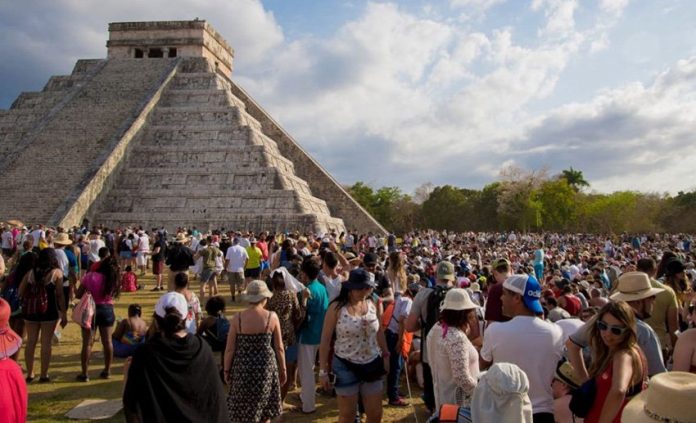Authorities in Yucatán doubled the admission fee for the Mayan city of Chichén Itzá from 242 to 480 pesos (US $12 to $24) effective today, drawing criticism from the tourism sector.
Several state tourism and hotel associations warned in a letter to lawmakers that the new fee will cause financial losses for tourist service providers and a drop in the number of visitors to the state.
They explained that travel agencies, tour companies and cruise lines have yearly agreements with local tour companies. Those agreements were based on the previous admission fee.
The president of Cetur, the Tourist Business Council of Yucatán, asserted that 90% of tourists visiting Chichén Itzá are foreigners, and that 90% of them travel from the neighboring state of Quintana Roo, meaning that the new fee will negatively impact the tourist industry in both states.
Jaime Solís Garza warned that if the new fee is not rolled back tourist service providers will take their clients to the archaeological site at Tulum, where the price of a ticket is 75 pesos (US $3.80).
He said tour companies were not notified of the plan to increase the admission charge.
Source: El Financiero (sp)
